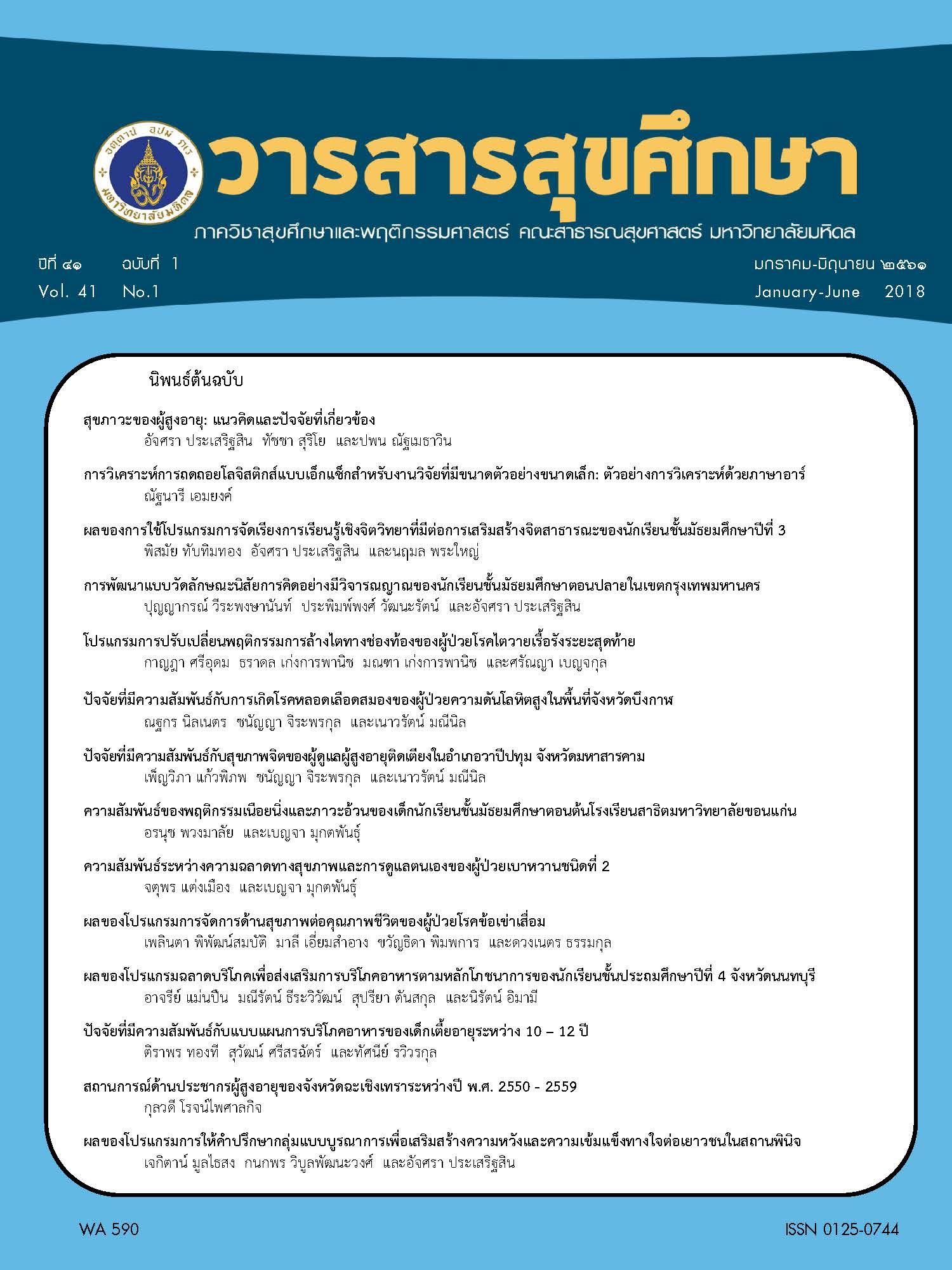The Effects of a Health Management Program on Quality of Life in Knee Osteoarthritis Patients
Keywords:
Health Management Program, Quality of Life, Knee Osteoarthritis PatientAbstract
This Quasi-experimental, research was to examine the effect of health management program on quality of life in Knee Osteoarthritis Patients. The sample was composed of 70 patients with knee osteoarthritis, and as inclusion criteria. Sample were recruited from the orthopedic clinic at Faculty of Medicine Vajira Hospital, Navamindradhiraj University, devided equally into a control group and an experimental group. The experimental group were required to receive a self-efficacy program for 12 weeks. There were 4 activities: Activity 1; Relationship, Activity 2; Osteoarthritis Education and Self-Management, Activity 3; Thigh muscles management, and Activity 4, Follow-up with existential individual counseling. The control group had received regular care. The instruments used were divided into 4 parts: 1) personal information questionnaire 2) knowledge questionnaire for Knee Disease; (KR-20=0.86) 3) severity of osteoarthritis questionnaire; (Cronbach's alpha coefficient=0.92) and 4) Quality of life questionnaire; (Cronbach's alpha coefficient=0.90). Data were analyzed with descriptive statistics and t-test.
The results showed that after the experimental group, there were significantly higher average score on knowledge about osteoarthritis, self-management and quality of life than before the experiment and than the control group; (p< 0.001). The experimental group had average significantly lower scores of severe symptoms, than before the experiment and than the control group; (p< 0.001). The study shows that this health management program can raise ability of to Osteoarthritis patients manage their own health condition, and finally resulting in a better quality of life.



